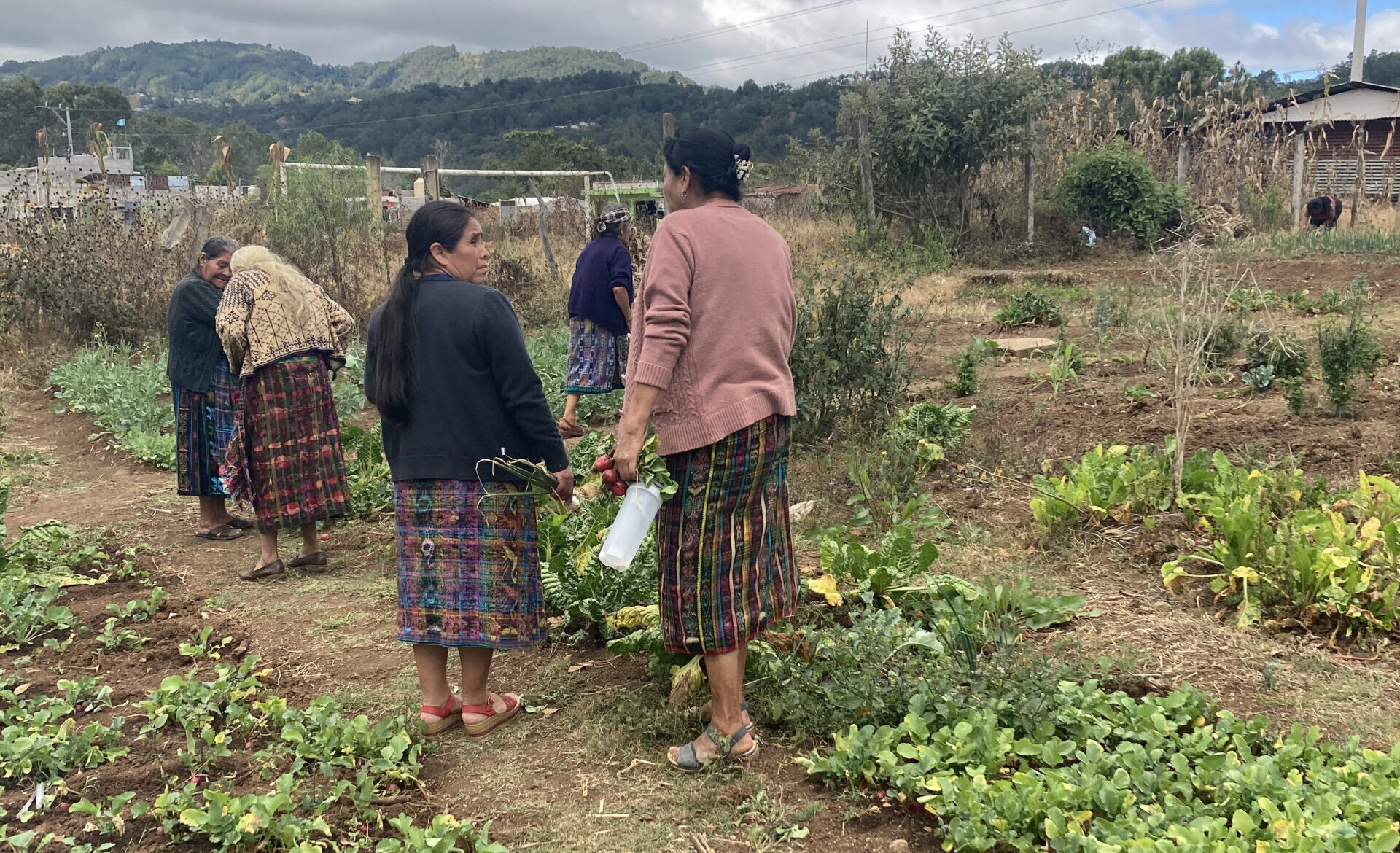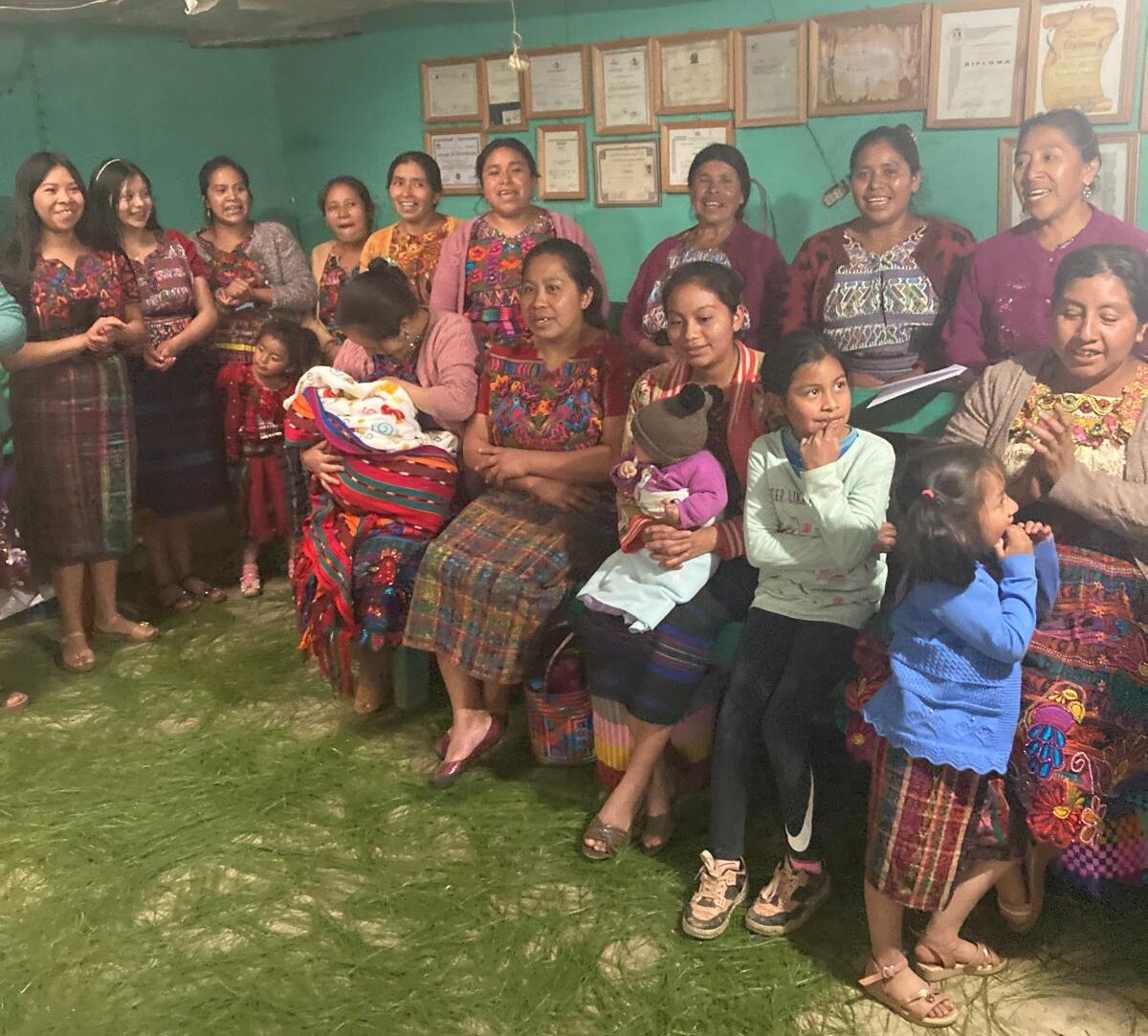Lubia invested her earnings from farming to start a small business.
“We have land that can produce good vegetation,” explained Lubia, a farmer from an Indigenous farming community in Guatemala called Chimaltenango. “But not without water.”
In Guatemala, Episcopal Relief & Development partners with the Episcopal Diocese of Guatemala to support farmers living within the Central American Dry Corridor. Droughts are historically common in the region, but over the last few decades they’ve become even more frequent and intense.
In Chimaltenango, a broken water well meant farmers in the community had no way to collect and store water during the rainy season to use during dry seasons and periods of drought. Moreover, they expressed the need for an irrigation system to deliver water to fields, family plots and community gardens.
“In the past, planting was good,” said Melissa, a farmer from the same community. “Now, there is not much water. That’s the most difficult thing.”
The Episcopal Diocese of Guatemala, with support from Episcopal Relief & Development, reached out to the local Ministry of Agriculture, Livestock and Food. Together with community volunteers, they repaired the well and installed an efficient drip-irrigation system. Program participants received seeds and organic fertilizer. Moreover, they were trained on new farming techniques for preventing soil erosion, improving soil quality, conserving water and other methods to address climate-related challenges.
“Little by little, participants have realized that it's a way for them to invest in themselves with their own money.”
“The members’ crops have increased,” said Jonathan, General Project Coordinator from the Diocesan team. “As they continue investing in their land and crops, the whole community benefits. Farmers are able to sell good quality produce to neighbors at affordable prices.”
Strengthening the financial resilience of farmers and their families is critical. Episcopal Relief & Development’s climate resilience programs promote economic empowerment through community-led savings groups. Facilitated by partner staff and trained community members, Savings with Education (SwE) groups combine savings, lending and financial literacy training.
Lubia and Melissa belong to one of two savings groups in Chimaltenango. While many savings groups in other communities include men and women, the combined 78 members of these two groups are all Indigenous women farmers.
“The Savings with Education project has been well received,” explained Maria, a trained SwE facilitator from the community. “Little by little, participants have realized that it’s a way for them to invest in themselves with their own money.”
She explained that the women in her groups use their savings to pay medical bills, cover school fees and contribute to household expenses. A woman named Dominga replaced leaky roof tiles before the start of the rainy season. Often, participants invest in agricultural supplies like additional organic fertilizer and new seed varieties.

Participants are encouraged and supported to explore additional income-generating opportunities, too. It’s an important part of building resilience to how climate change affects their farming. Some take advantage of training courses focused on making and selling simple, inexpensive-to-produce household products—like soap or fabric softener—to generate extra income. Others make and sell baskets and clothing or start small businesses.
“I used my savings as capital to start a business selling nutritional supplements,” Lubia shared. “My dream is to grow my businesses. I want to buy a car so I can deliver my products to other villages. I want to open a store.”

Working through an extensive network of faith-based partners, Episcopal Relief & Development is reaching agricultural communities around the world. Together, Episcopal Relief & Development and the diocese are equipping and supporting farmers like Lubia to face the future with confidence and hope.
Recently, Lubia attended an entrepreneurship conference in Guatemala City.
“I was invited by a nutritional supplement brand, with all expenses paid,” she shared. “They took me seriously. It was a very special moment.”
Our Results in Numbers
-
11,000
farmerstrained in climate-smart agriculture
-
67,000
treesplanted around the world
-
76
wellsor water points constructed or repaired
-
2,700
householdswith new kitchen gardens
A Note from our Director
Vanessa Pizer, Director, Climate Resilience Initiatives, shares how our programs help farmers around the world to adapt for a more resilient future.